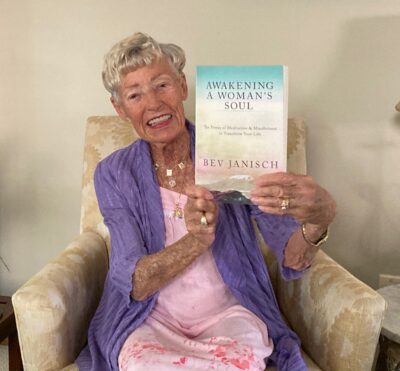Many women today feel tired in a way that sleep doesn’t fix. We push through the days, caring for others, meeting expectations, and wondering why we still feel anxious, unwell, or disconnected from ourselves.
Beneath the surface, something deeper is happening. Women’s stress has become so woven into our identities as women—the caretakers, the peacemakers, the ones who keep it all together—that we often don’t recognize how it’s shaping our health, emotions, and sense of self.
Research confirms what many of us have felt for years: stress affects women differently. Our biology, hormones, and social conditioning combine to make us more vulnerable to stress-related illness, fatigue, and emotional exhaustion. But beyond the science, there’s a soul truth: when we abandon ourselves to meet expectations, the body keeps the score.
Awakening women everywhere are feeling the call to release the conditioning that keeps them unwell—to reclaim their voices, reconnect with their bodies, and live in right relationship with themselves, others and the mysteries of life.
I know this journey intimately, because it was my own! And not surprisingly, the stress and conditioned suffocating beliefs about what it meant to be a “good woman” were a generational torch that was passed on to me by my mom.
For me, the journey home to myself was triggered by inner stress and a deep ache inside me that I came to call “soul hunger.”
Awakening women feel soul hunger.
At 87, my mom read my book Awakening a Woman’s Soul: The Power of Meditation and Mindfulness to Transform Your Life. Although she couldn’t understand or relate to concepts like transformation, awakening, meditation, mindfulness, or consciousness, she could relate to what it feels like to have a part of your life that is unlived and the soul hunger that accompanies that.
When she read the term “soul hunger” in the book, something inside her woke up. She knew about the feeling of soul hunger but hadn’t had a name for it for so many years.
Soul hunger refers to a deep, spiritual longing or missing something essential. It is frequently associated with feelings of emptiness or a lack of fulfillment that material possessions or external achievements cannot satisfy. If you’re curious, I wrote an article about soul hunger and why it’s the silent epidemic of the 21st century.
My mom trained as a nurse 70 years ago. She had wanted to do this job since she was a little girl. She gave up her nursing career to raise her three daughters. She didn’t want to give it up, but the conditions at the time made it virtually impossible for her to work.
At the time, it wasn’t common or easy for women to work outside the home. The woman’s role was to stay home and raise the children, and the man’s role was to be the breadwinner and provide for the family. She was a woman born ahead of her time!
My mom had an inner yearning that she couldn’t express and had to suppress. This inability to fully express herself as a nurse and in so many other big and small ways resulted in a slow withering of her soul and the symptoms that often accompany that. She was angry, resentful, and generally suffering for much of her life. Her unhappiness and festering resentment didn’t become her and impacted her physical and emotional health!
This all changed when she was alone in the final year of her life and felt like she was in control of her life. She stepped into her authentic power and began to flourish. We saw her true self emerge as her toxic anger and resentment dissolved and were replaced by love and compassion. It was a beautiful gift and a powerful lesson about stifling our soul’s need for expression and doing the hard work to make peace with ourselves and others.
While things have changed a great deal since my mom raised her family, I continue to hear from women of all ages who struggle to balance the fulfillment of their roles with the needs of their souls. Women are stressed, burnt out, and suffering from the stress of soul hunger, which impacts us in significant ways!
Women’s stress contributes to health issues.
Physician and author Gabor Maté reports that women take twice as many antidepressants, experience 80 percent of autoimmune diseases, and suffer more chronic illness and pain than men. These numbers reveal a truth many of us have lived but not named: the pressure to please, perform, and perfect is making women sick.
Maté explains that this suffering isn’t simply biological. It’s rooted in stress and conditioning. Four factors contribute to women’s higher stress burden:
-
Greater emotional concern for others
-
Suppression of healthy anger
-
Identification with roles and responsibilities
-
A sense of responsibility for others’ emotions
Psychologist Dana Crowley Jack, who developed the Silencing the Self Theory, found that many women learn to suppress their authentic feelings and needs in order to maintain connection or avoid conflict. Over time, this self-silencing that’s rewarded by cultural ideals of agreeableness, selflessness, and emotional caretaking leads to disconnection, depression, and chronic stress that undermines our health and vitality.
The science of stress and the female body.
Studies show that women’s stress systems function differently from men’s. Hormonal shifts across the lifespan—from menstruation to menopause—influence how cortisol and adrenaline are processed. Women often engage the “tend-and-befriend” response rather than fight-or-flight, seeking harmony and connection under stress. When that connection feels unsafe or unavailable, stress turns inward and shows up as fatigue, anxiety, or illness.
Chronic stress affects every system in a woman’s body. It disrupts immune function, increases inflammation, and contributes to the high rates of autoimmune disorders, thyroid imbalances, and sleep disturbance that so many women experience. Over time, the body forgets how to rest.
Yet the same research shows the nervous system can heal. When we calm the body, soften the heart, and nurture the mind through meditation, mindfulness, and nervous-system regulation, the stress cycle completes. Healing begins not through control, but through reconnection.
Awakening women are seeking balance.
In Burnout: The Secret to Unlocking the Stress Cycle, sisters Emily and Amelia Nagoski describe what they call Human Giver Syndrome—the cultural belief that women should be pretty, calm, generous, and endlessly attentive to others. They suggest that giving isn’t the problem; imbalance is.
It feels as if awakening women are in a collective dark night of the soul. We’re being asked to release the masks and patterns that once kept us safe but now keep us small. To navigate this consciously, we must become aware of how conditioning shapes our thoughts, feelings, and behaviour—and begin the inner work of returning home to ourselves.
The path to healing and inner peace.
Healing begins with awareness—seeing where we’ve absorbed beliefs that keep us silent, striving, or depleted. As we reconnect with ourselves through practices like meditation, mindfulness, and nervous-system regulation, we begin to live from the inside out rather than the outside in.
This is the essence of my Four Keys to Inner Peace framework:
-
Self-Regulation — calming the body’s stress response and creating safety within
-
Self-Love — cultivating compassion instead of guilt or self-judgment
-
Self-Discovery — remembering who we are beneath conditioning and roles
-
Self-Expression — living with authenticity, purpose, and joy
When we tend to our nervous system and our soul with gentle awareness, stress becomes a messenger rather than a disease. We awaken not only to who we are but to what it means to be fully alive—peaceful, connected, and whole.
It’s time for women to stop carrying stress as proof of love and start seeing calm as a sacred act of self-respect.




There are so many great points and resources here Bev, thank you. Navigating soul hunger certainly involves peeling away the layers of our conditioning that have been heaped upon us without our knowing. As you said, this begins by paying attention and questioning where our beliefs came from, checking in to see if they are, in fact, true or constructed.
Donna, thanks so much for sharing with us here! I’m grateful to hear this resonated! Love, Bev